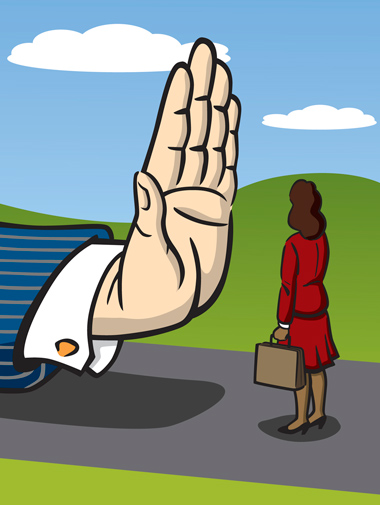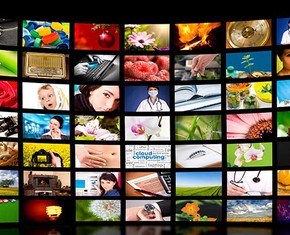The views expressed in our content reflect individual perspectives and do not represent the authoritative views of the Baha'i Faith.
Racism originates not in the skin but in the human mind. Remedies to racial prejudice, xenophobia and intolerance must accordingly address first and foremost those mental illusions that have for so many thousands of years given rise to false concepts of superiority and inferiority among human populations.
At the root of all forms of discrimination and intolerance is the erroneous idea that humankind is somehow composed of separate and distinct races, peoples or castes, and that those sub-groups innately possess varying intellectual, moral, and/or physical capacities, which in turn justify different forms of treatment.
The reality is that there is only the one human race. We are a single people, inhabiting the planet Earth, one human family bound together in a common destiny, a single entity created from one same substance. Recognition of this reality is the antidote to racism, xenophobia and intolerance in all its forms. – Statement from the Baha’i International Community, 25 August 2001
 Most people understand that racism can be understood as a social construct—where all racial divisions are man-made inventions, and hold no basis in ultimate reality. How then can we transcend our current reality and create a new paradigm?
Most people understand that racism can be understood as a social construct—where all racial divisions are man-made inventions, and hold no basis in ultimate reality. How then can we transcend our current reality and create a new paradigm?
That new paradigm of equality and justice would permit us to learn from the past, while at the same time permitting us to continue to advance, contributing to our local, regional and national communities, and ultimately to our world. Abdu’l-Baha made this point when he addressed an integrated audience in America a century ago:
Animals, despite the fact that they lack reason and understanding, do not make colors the cause of conflict. Why should man, who has reason, create conflict? This is wholly unworthy of him… These colors developed later due to climates and regions; they have no significance whatsoever. Therefore, today I am very happy that white and black have gathered together in this meeting. I hope this coming together and harmony reaches such a degree that no distinctions shall remain between them, and they shall be together in the utmost harmony and love. – The Promulgation of Universal Peace, p. 45.
The solution, then, is recognizing and acting on our interconnectedness, oneness and unity. The world has shrunk. We are human. We are spirit. We all bleed red. We must learn to coexist—races, nationalities, religions, genders, all.
Not unlike America a hundred years ago, today’s America faces a similar situation. However, the conditions in society have become increasingly more complex. We now confront different challenges that require deeper levels of awareness and stronger actions, if we are to deal with such complexities over time. If we desire to understand the intricate and more systemic challenges that prevent us from seeing our inherent oneness, than we must be willing to regularly adapt our approaches to new contexts as they present themselves. Further, to be fair, we must take note that while there is much to do, progress is being made. We must focus our attention on our strengths—that which unites us.
We must encourage each other, build each other up, and actively work together for unity:
Happy the soul that shall forget his own good, and like the chosen ones of God, vie with his fellows in service to the good of all. – Abdu’l-Baha, The Secret of Divine Civilization, p. 116.
In Part 1 of this series of essays, we contemplated the importance of balancing the material with the spiritual, and approaching life in a constant state of humility.
In Part 2, we examined the need to be patient, seek truth for ourselves, keep an open mind, and maintain our ability to judge with fairness and equity.
In Part 3, we explored our ability to transcend the societal tendencies of prejudicial retribution, assured of God’s faith in our ability to rise to the challenge as we collectively come of age.
And here, in Part 4, we re-affirm that all prejudices are, in truth, vain imaginings. All divisions are man-made. Truly, we are all God’s children.
We definitely have our work cut out for us. But, we must always keep in mind that we are in the midst of this great balancing act called life. We must understand that we all have a role to play and that we can only control our own actions. We must remain flexible to address the ever-changing landscape ahead of us. With love, patience, humility, openness, and by transcending the need for retribution, we can begin to forgive the wrongs of the past and move beyond our current state of unrest and chaos. Balance in our lives depends upon forgiving ourselves and one another. It is forgiveness, the ability to move beyond, that will assist us transcending racism, and will ultimately lead to manifesting equality, justice, unity, and peace.
Baha’is believe that Baha’u’llah came to remind us once again of the Golden Rule, to declare God’s faith in us, and to usher in humanity’s coming of age—that Golden Age foretold by all the prophets of the past. The choice of acknowledging our maturity and consequently our collective unity is ours to make. For peace to ultimately reign, we must have unity, unity established by justice, and justice manifested in equality. Let us strive to find that balance, that equality, that awareness, and create a new paradigm of an ever-advancing civilization. Let there be peace on earth, and let it begin with me.
You May Also Like
Comments

















So yes, that may not be the sole problem, but their is a general tendency of humans to develop social constructs according to hierarchical lines of thinking---going back to the migration of Modern Humans out of southern and eastern Africa to populate the rest of the continent, and the world.
To minimize this tendency and these realities is dishonest to say the least.
There might be some broad truth in some of ...these views, but there is also probably an idealized element to each of them. Furthermore, there are endless variables of circumstance, location, and each person’s experience that might run counter to any or all of them. As Baha’is, we’re cautioned against seeking simple answers based on preconceived notions. I think we must strive to see each person as a human soul first and foremost, and be prepared to listen to what each and every one has to say. Never assume anything about anybody, or what they might have been through, simply because of their skin pigmentation, apparent social status or any other “identity marker” by which contemporary society might try to pigeonhole them.